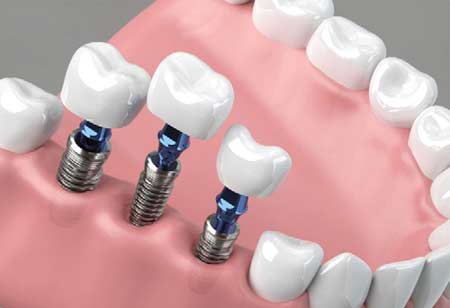Thank you for Subscribing to Healthcare Business Review Weekly Brief
Be first to read the latest tech news, Industry Leader's Insights, and CIO interviews of medium and large enterprises exclusively from Healthcare Business Review
The Global Investment Boom in the U.S Dental Implants Market
The U.S. dental implant market is experiencing a significant surge, driven by a blend of factors paving the way for a global investment boom.

By
Healthcare Business Review | Thursday, August 22, 2024
Stay ahead of the industry with exclusive feature stories on the top companies, expert insights and the latest news delivered straight to your inbox. Subscribe today.
The U.S. dental implant market is experiencing a significant surge, driven by a blend of factors paving the way for a global investment boom. This growth is fueled by an increasing awareness of oral health’s critical role in overall well-being, significant advancements in dental technology, and a rising demand for aesthetic dentistry solutions. These elements create a dynamic environment that positions the dental implant market for sustained growth and innovation.
One of the key drivers of this market expansion is the growing recognition of the long-term benefits of maintaining comprehensive oral health. More individuals are becoming aware of how crucial it is to address dental issues effectively and promptly. This awareness has led to a noticeable shift in consumer preferences, with dental implants increasingly favored over traditional dentures. Unlike dentures, which can be cumbersome and uncomfortable, dental implants provide a stable, natural-feeling, and aesthetically superior solution for tooth replacement. The preference for implants is rooted in their ability to offer a more permanent and satisfying outcome, thus making them the go-to choice for many patients seeking to restore their oral health and function.
Technological advancements in dentistry have further accelerated the growth of the dental implants market. Today’s dental implants are crafted from advanced biocompatible materials that significantly reduce the risk of rejection and other complications. These materials, combined with the evolution of implant placement techniques, have made dental implant procedures less invasive and more patient-friendly. For instance, the advent of minimally invasive surgical techniques has reduced recovery times and minimized discomfort, making the entire process more appealing to a broader range of patients. Computer-guided implant surgery has also revolutionized the field by enhancing precision and accuracy. This technological innovation ensures better clinical outcomes, higher success rates, and increased patient satisfaction, all of which contribute to the growing popularity of dental implants.
The burgeoning trend toward aesthetic dentistry is another powerful force driving the expansion of the dental implant market.






